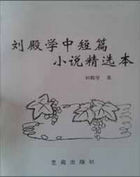position.They had their meals with Mr Gibson and Molly, and were felt to be terribly in the way; Mr Gibson not being a man who could make conversation, and hating the duty of talking under restraint.Yet something within him made him wince, as if his duties were not rightly performed, when, as the cloth was drawn, the two awkward lads rose up with joyful alacrity, gave him a nod, which was to be interpreted as a bow, knocked against each other in their endeavours to get out of the dining-room quickly; and then might be heard dashing along a passage which led to the surgery, choking with half-suppressed laughter.Yet the annoyance he felt at this dull sense of imperfectly fulfilled duties only made his sarcasms on their inefficiency, or stupidity, or ill manners, more bitter than before.Beyond direct professional instruction, he did not know what to do with the succession of pairs of young men, whose mission seemed to be to plague their master consciously, and to plague him unconsciously.Once or twice Mr Gibson had declined taking a fresh pupil, in the hopes of shaking himself free from the incubus, but his reputation as a clever surgeon had spread so rapidly that fees which he had thought prohibitory, were willingly paid, in order that the young man might make a start in life, with the prestige of having been a pupil of Gibson of Hollingford.But as Molly grew to be a little girl instead of a child, when she was about eight years old, her father perceived the awkwardness of her having her breakfasts and dinners so often alone with the pupils, without his uncertain presence.To do away with this evil, more than for the actual instruction she could give, he engaged a respectable woman, the daughter of a shopkeeper in the town, who had left a destitute family, to come every morning before breakfast, and to stay with Molly till he came home at night; or, if he was detained, until the child's bedtime.'Now, Miss Eyre,' said he, summing up his instructions the day before she entered upon her office, 'remember this: you are to make good tea for the young men, and see that they have their meals comfortably, and - you are five-and-thirty, I think you said? - try and make them talk, - rationally, I am afraid is beyond your or anybody's power; but make them talk without stammering or giggling.Don't teach Molly too much: she must sew, and read, and write, and do her sums; but I want to keep her a child, and if I find more learning desirable for her, I'll see about giving it to her myself.
After all, I am not sure that reading or writing is necessary.Many a good woman gets married with only a cross instead of her name; it's rather a diluting of mother-wit, to my fancy; but, however we must yield to the prejudices of society, Miss Eyre, and so you may teach the child to read.' Miss Eyre listened in silence, perplexed but determined to be obedient to the directions of the doctor, whose kindness she and her family had good cause to know.She made strong tea; she helped the young men liberally in Mr Gibson's absence, as well as in his presence, and she found the way to unloosen their tongues, whenever their master was away, by talking to them on trivial subjects in her pleasant homely way.She taught Molly to read and write, but tried honestly to keep her back in every other branch of education.It was only by fighting and struggling hard, that bit by bit Molly persuaded her father to let her have French and drawing lessons.















